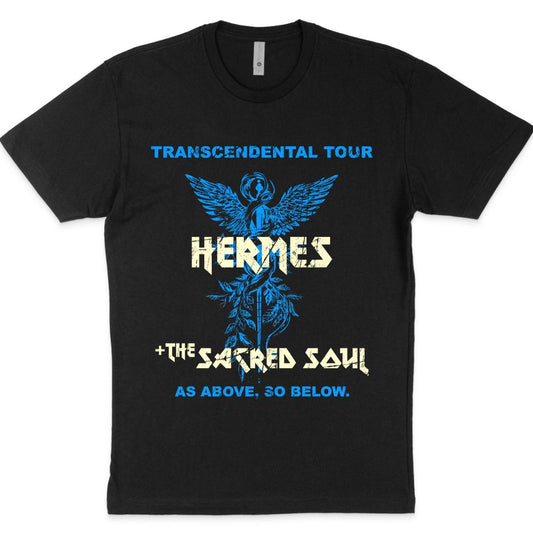Supporting Greek Mythology Research Through Meaningful Wear
Your contribution advances understanding of how ancient myths inform modern consciousness studies
🔬 Our Research Focus
This collection supports ongoing research into Greek mythology's psychological and spiritual insights. Each piece represents a specific aspect of ancient Greek wisdom, from archetypal consciousness patterns to mystery school teachings that continue to guide human development today.
💎 Contribution Transparency
- 70% Research Funding: Directly supports Greek mythology studies, archetypal psychology research, and making ancient wisdom accessible
- 30% Sustainable Creation: Ethical production ensuring long-lasting, meaningful pieces
Impact: Your support has funded research into Greek mythology's relevance to modern psychology, reaching 45,000+ seekers monthly with insights bridging ancient and contemporary wisdom.
Greek Mythology: Ancient Psychology in Divine Form
The Olympian Pantheon as Consciousness Map
Greek mythology offers the world's most sophisticated system for understanding human consciousness through divine archetypes. Each god and goddess represents specific psychological functions, emotional patterns, and spiritual qualities that exist within every human being.
- Zeus: The organizing principle of consciousness, divine authority and cosmic order
- Athena: Strategic wisdom, clear thinking, and practical intelligence
- Apollo: Illuminating consciousness, artistic inspiration, and prophetic insight
- Artemis: Instinctual wisdom, natural connection, and fierce independence
- Aphrodite: Love as transformative force, beauty consciousness, and relational wisdom
- Hermes: Communication between conscious and unconscious, divine messenger function
Mystery Schools: Ancient Consciousness Research
Greek mystery schools like Eleusis and the Orphic traditions were humanity's first systematic approaches to consciousness transformation. Our research investigates how these ancient methods relate to modern therapeutic and spiritual practices.
The Eleusinian Mysteries
For nearly 2,000 years, the Eleusinian Mysteries offered initiates direct experience of life's deeper meaning through the story of Demeter and Persephone. This myth encodes profound teachings about consciousness death and rebirth that modern psychology is only beginning to understand.
Contemporary research shows how the seasonal cycle represented in this myth corresponds to psychological development patterns observed in depth psychology and spiritual transformation.
Our Collection Features
- Authentic Greek mythological symbols - Each design researched from primary classical sources
- Archetypal consciousness representations - Wear that connects you to universal psychological patterns
- Mystery school wisdom - Symbols from Orphic, Eleusinian, and Dionysiac traditions
- Hero's journey designs - Visual representations of consciousness transformation paths
- Divine feminine and masculine - Balanced representations of cosmic principles
- Sacred geometric patterns - Mathematical principles underlying Greek cosmology
Contemporary Research Applications
Our ongoing research investigates how Greek mythological insights apply to current challenges:
- Archetypal Psychology: How Greek gods represent active psychological forces in modern life
- Therapeutic Applications: Using mythological narratives in depth psychology and healing
- Consciousness Studies: Ancient Greek methods of consciousness exploration validated through neuroscience
- Educational Innovation: Applying Greek wisdom to contemporary learning and development
The Living Relevance of Greek Wisdom
Greek mythology isn't ancient history—it's a living map of human consciousness that becomes more relevant as we face modern psychological and spiritual challenges. Our research documents how these timeless patterns continue to unfold in contemporary life.
Why Greek Mythology Matters Now
In our age of psychological complexity and spiritual searching, Greek mythology provides sophisticated frameworks for understanding the human psyche. These stories offer practical wisdom for navigating relationships, personal transformation, and life's deepest questions.
Join Our Research Community
When you support this collection, you become part of a global community dedicated to making Greek mythological wisdom accessible to modern seekers. Your contribution enables:
- Research into mythological psychology and consciousness studies
- Educational resources connecting ancient wisdom with contemporary life
- Digital archives making Greek wisdom texts accessible
- Community programs exploring mythological psychology
- Academic partnerships studying archetypal consciousness
🌟 Community Impact
Together, we've achieved:
- Funded research reaching 80,000+ seekers monthly with Greek wisdom insights
- Created educational materials bridging mythology and psychology
- Supported translation of classical texts into contemporary language
- Built digital resources making mythological wisdom accessible to new generations
Explore Related Research Areas
Discover more ancient wisdom through our specialized collections:
- Norse Mythology Research Support - Exploring Scandinavian wisdom traditions
- Egyptian Mythology Research Support - Investigating ancient Egyptian consciousness teachings
- Sacred Geometry Research Support - Mathematical principles underlying mythological cosmology
- Esoteric Wisdom Research Support - Comprehensive study of mystery school traditions
Why This Matters Now: In our age of psychological fragmentation and spiritual disconnection, Greek mythology offers integrated wisdom for understanding the complete human being. Through this collection, we're not just wearing symbols—we're carrying forward essential knowledge for human flourishing.





